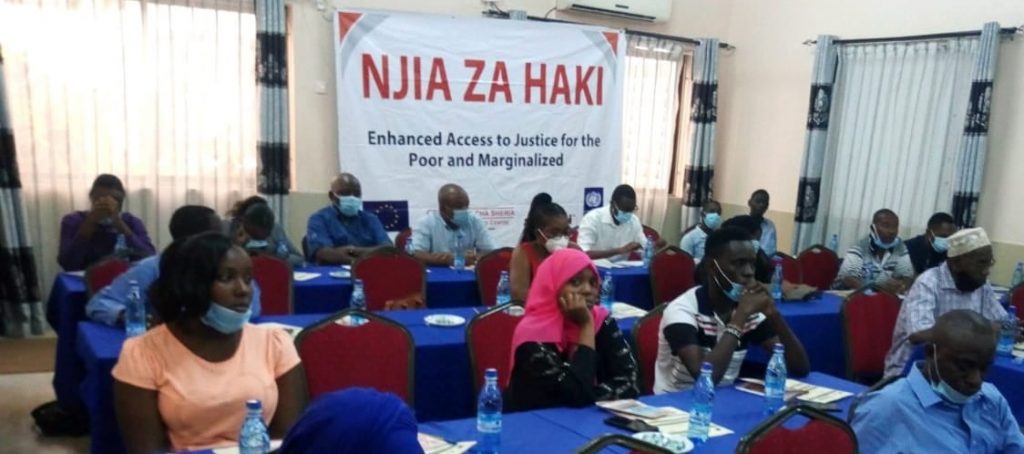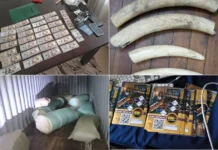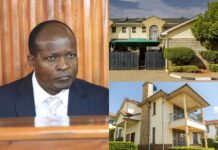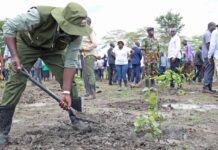The national government has been urged to fast track the establishment of the Legal Aid Fund to address the challenges of funds inadequacy. – By Ramadhan Kambi.
A section of paralegals speaking in Mombasa county after a workshop said once in force, the Legal Aid Fund be prudent in assisting Kenyans facing funds to process their cases.
Many Kenyans end up losing cases because they don’t have any funds to give out to lawyers and other court cases charges.
According to the paralegals there has been a delay in the establishment of the fund since 2016 and now wants more government intervention on the same.
Addressing the media in Mombasa, Dismus Omondi from Wema Justice Centre reiterated the role they paralegals play in the community.
“Some cases require ample funds while others documents require fees to process. Our work is complicated by the fact that we do not have sufficient funds,”

He further asked the government to recognize paralegals and sensitize Kenyans on their role in contemporary society.
Kituo Cha Sheria Advocate Zedekiah Adika asked Parliament to urgently approve the gazetted regulations under the Legal Aid Service.
He cited delay by the August house as an impediment towards its approval.
Mr Adika called on the government to further simplify the Legal Aid Service curriculum saying that it will facilitate and strengthen paralegal practice in the country.
“The government should ensure all regulations are put in place for paralegals “Legal Aid Service should be facilitated to be as active as possible,” noted the advocate.
He asked the exchequer to facilitate the release of Legal Aid Funds saying “the project is meant to enhance the access to justice to the poor,”
Coast Regional National legal aid service head Mutegi Muthomi said the government is currently working on a training curriculum for paralegals.
“We are working on the legal aid fund to ensure funds trickle down to targeted groups. Paralegals should seek to engage with us. We shall assist advise them in relation to the law,”
Mr Adika said the program dubbed Njia za Haki is supported by the European Union (EU) and the United Nations Development Program (UNDP)



















